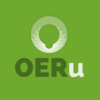Terms of reference for the OERu Council of CEOs
From WikiEducator
< OERu | OERu Council of CEOs(Redirected from OERu/OERu 13.11 Council of CEOs/draft terms of reference)
| OERu 2013 Events | |
|---|---|
| OERu 13.11 OERu Council of Chief Executive Officers | Homepage and agenda | Draft terms of reference | Report |
Contents
Role / purpose
The role of the OER universitas (OERu) Council of Chief Executive Officers is to provide executive leadership at the corporate institutional level to facilitate the achievement of the aims of the OERu for the mutual benefit of learners and its members.
Aims of the OERu
Directed by the core principles of engagement the OERu network aims to:
- Provide free learning opportunities and affordable assessment pathways to enable learners to earn credible qualifications from accredited institutions
- Offer open online courses and programs based on OER and open access materials
- Implement scalable technology-enhanced pedagogies
- Implement scalable systems of technology-mediated learner support
- Offer assessment and credentialing services
- Assure appropriate course articulation among partner institutions.
Membership
The Council will comprise incumbent Chief Executives (or senior designated nominee) of current OERu partner organisations.
Roles and responsibilities
Council members will endeavour to:
- Foster collaboration among all partner organisations
- Provide mentorship and support to OERu partners for collaborative implementation of the OERu
- Provide advice and guidance to the network on the implementation of the OERu
- Support the offering of courses and programmes using open education approaches with pathways to achieve formal academic credit
- Promote the design, development and delivery of innovative open online courses
- Engender the development and implementation of sustainable and scalable systems for learner support through community service learning approaches
- Support the formalization of appropriate credit transfer arrangements between partner institutions within existing policy protocols
- Share institutional policies and strategies associated with open education practices
- Discuss strategic higher education futures associated with open education
- Investigate and deploy emerging business models for the development of sustainable higher education futures.
- Promote the expansion and development of the network.
Version history
- The Terms of Reference are effective from 5 November 2013
- Reviewed and confirmed with minor adaptations on 10 November 2014.
- Reviewed and added additional roles on 9 October 2015.
- Reviewed 5 October 2016
- Reviewed 16 October 2017 and replaced "student" with "learner" in the document.
- Reviewed 1 November 2019 and replaced "leaner" with "learner" (spotted by Darien Rossiter)
